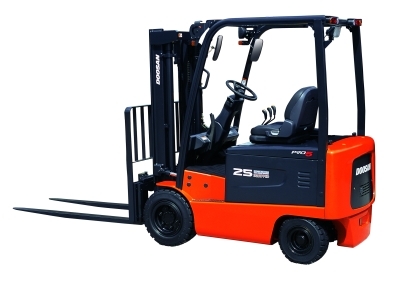Exploring the Possibilities of Forklift Rentals
There are many reasons why renting forklifts makes more sense than buying them. Whether it’s covering immediate application demands due to broken equipment, meeting seasonal peaks in order, or needing particular lifts for a unique project, renting may be your best option.
But how do you know if this is the right solution for your operation?
Cost-Effectiveness
Forklift rentals are a cost-effective solution for businesses that need equipment for short periods. This is because they eliminate the upfront costs of purchasing forklifts and offer flexible terms to meet your business needs.
Moreover, forklift rental services offer on-demand availability to ensure you can access the equipment when needed. In addition, they also help you avoid maintenance and repair costs that you would incur when owning your fleet of forklifts.
Renting is also a great way to test new equipment for your company without immediately committing to a large purchase. Many forklift companies rent their vehicles weekly or monthly, allowing you to see how the equipment works for your operations before committing to a long-term lease or purchase. Additionally, most rental services include maintenance fees in the rental contract, making it easy for you to budget accordingly.
Flexibility
Flexibility is critical in forklift acquisition as businesses adapt to a 24×7 business environment and economic uncertainty. Many rental companies offer flexible options like renting equipment daily, weekly, monthly, or long-term.
Additionally, some rental providers have electric or autonomous forklifts available to meet the needs of specialized applications and new technological demands. By focusing on customer support, forklift leases by rental companies can ensure prompt response times and transparent pricing to provide hassle-free rentals.
Renting may also be tax-friendly than purchasing forklifts, as it is considered an operational expense versus a capital investment. Consult a tax professional to explore your options and see which solution fits your company’s budget best. As a result, businesses can avoid making significant financial commitments to an asset that may depreciate and require maintenance costs even after it’s outlived its usefulness. In addition, they can gain access to quality equipment quickly and easily during a seasonal or temporary surge.
Tax Deductions
A forklift rental is a tax-deductible business expense, which helps reduce your company’s overall tax burden. This benefit can eliminate costly tax ramifications and complex depreciation schedules during tax season.
You can claim equipment rental costs on the same tax form as other deductible expenses, like payroll taxes and homeowner association fees. However, it’s essential to instruct your employees to treat rented equipment carefully so that it returns in good condition. Otherwise, you may be liable for any damage or wear and tear not covered by the lease.
Many companies buy material handling equipment during the year-end to take advantage of Section 179, which allows them to write off a large percentage of the cost in one year instead of writing it off a little bit at a time through depreciation. However, if you use the cash method to report your income and expenses, the forklift will be recognized as an asset in the year you pay for it, which may differ from the year you claim the deduction.
Maintenance
Forklift maintenance costs are a significant consideration for many businesses, and renting forklifts allows you to avoid these expensive fees. Most dealers include routine maintenance in the monthly rental fee, so you can focus on keeping your operations running smoothly without worrying about maintenance budgets.
Often, a forklift dealer will have many machines in stock. That means you can get a forklift immediately if you need one for a short-term project, handle an increase in operational demands during the seasonal business, or replace equipment for repairs.
Renting forklifts also eliminates the initial upfront cost of a purchase, freeing up your capital to invest in other parts of your operation. Plus, you can swap out forklifts quickly if they become damaged, unlike assets that require longer lead times to be made and delivered from the factory. Purchased vehicles may also be eligible for tax deductions, while rentals are generally not.
